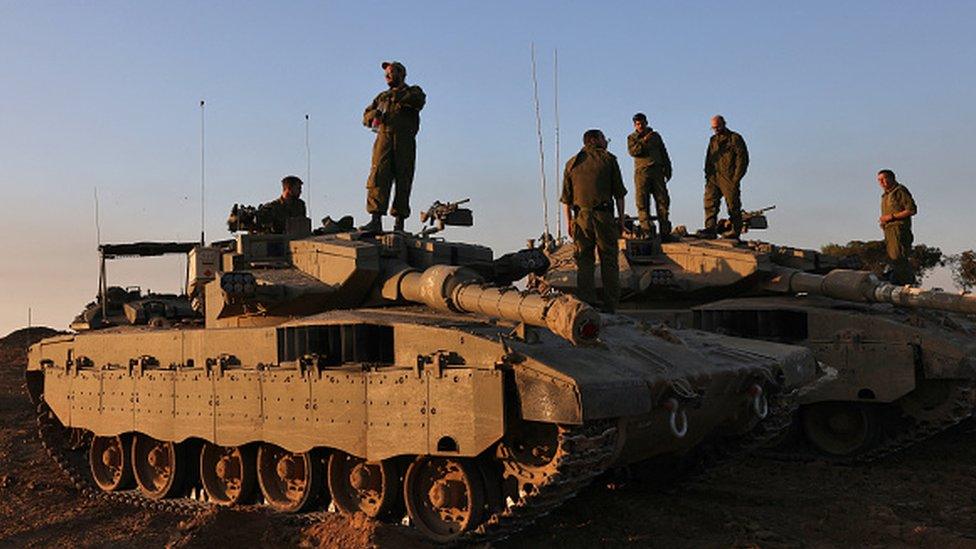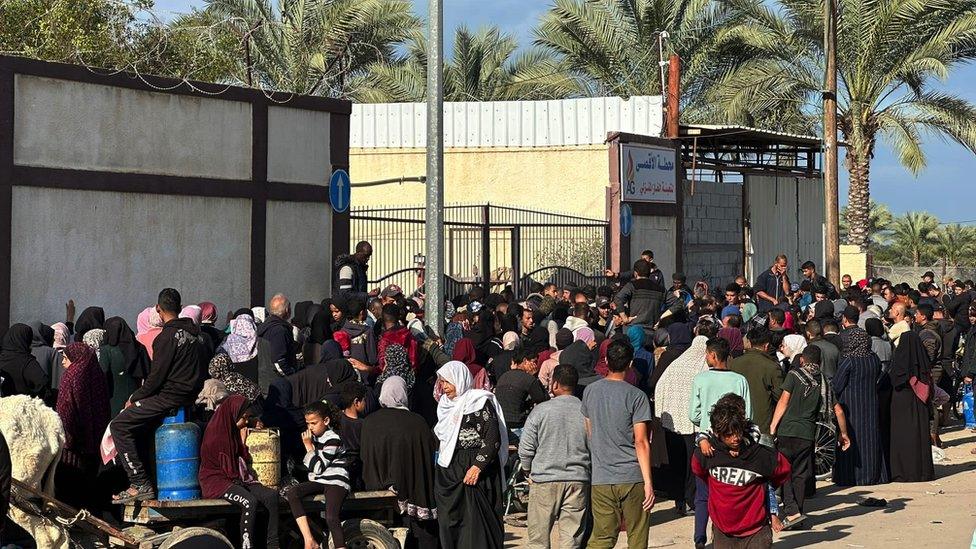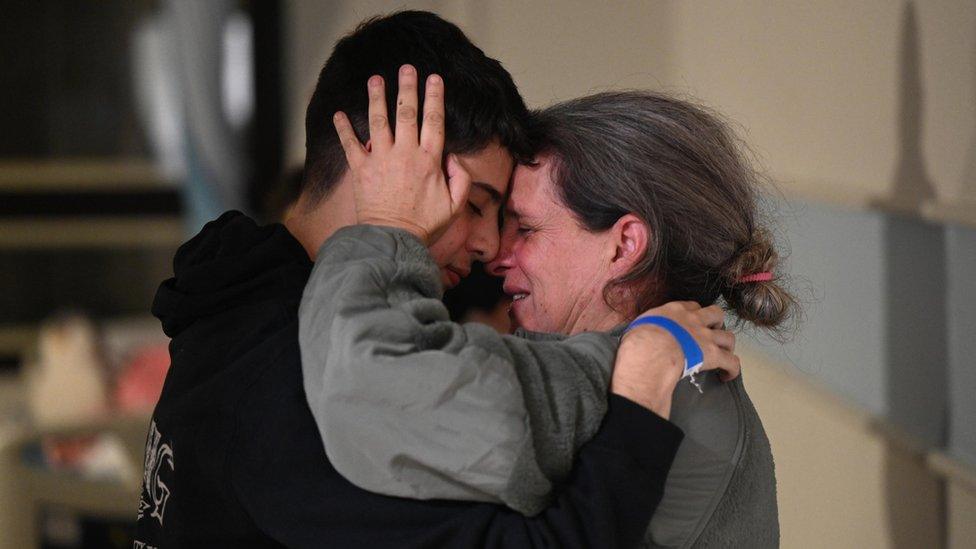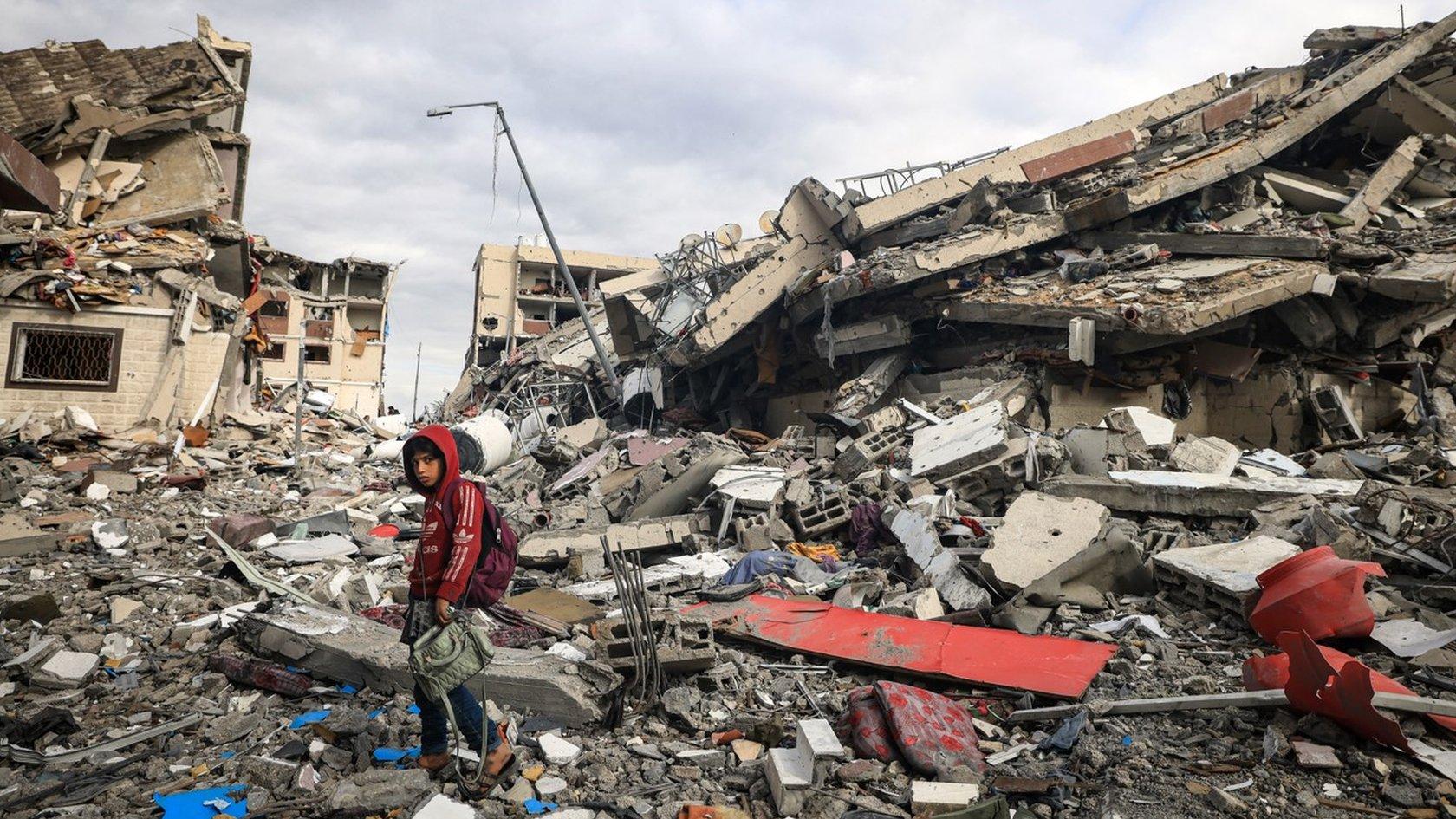Israel-Hamas truce in Gaza extended as more hostages freed
- Published

Israeli soldiers stand on tanks deployed on the southern border with the Gaza Strip on Wednesday
Israel and Hamas have agreed to extend their truce for another day, minutes before it was due to expire.
The temporary ceasefire was extended for a seventh day, shortly before 05:00 GMT, following mediation with Qatar.
The deal has led to the release of dozens of hostages kidnapped by Hamas in exchange for Palestinians held in prisons and aid deliveries into Gaza.
On Wednesday night, 16 more hostages taken captive by Hamas were released, as were 30 Palestinians.
So far, some 102 Israeli hostages have been freed, while 210 Palestinians prisoners have been released. About 140 Israelis remain in captivity.
Israel's military said the temporary ceasefire was being extended "in light of the mediators' efforts to continue the process of releasing the hostages and subject to the terms of the framework".
The prime minister's office subsequently confirmed the extension, saying it had received a new list of women and children hostages, though it did not specify how many names were on the list.Hamas said there was an agreement to "extend the truce for a seventh day," without giving further details.
The initial truce was due to last four days but has been extended twice.
When the agreement was negotiated, Israel said the pause in fighting would be extended by one day for every 10 further hostages released.
US Secretary of State Antony Blinken said the truce was "producing results" and should continue.
"We have seen over the last week the very positive development of hostages coming home, being reunited with their families," he said at a meeting with Israeli President Isaac Herzog in Tel Aviv on Thursday.
"It's also enabled an increase in humanitarian assistance to go to innocent civilians in Gaza who need it desperately."
But on Wednesday Israel's Prime Minister, Benjamin Netanyahu, repeated earlier pledges to resume the war once the truce ends.
"There is no way we are not going back to fighting until the end. This is my policy, the entire cabinet stands behind it, the entire government stands behind it, the soldiers stand behind it, the people stand behind it - this is exactly what we will do," he said in a statement on Wednesday.
Before the extension was agreed, United Nations Secretary General Antonio Guterres said that the Gaza Strip was in the midst of an "epic humanitarian catastrophe".
He welcomed the negotiations to prolong the truce but added that a "true humanitarian ceasefire" was needed.
The UN estimates that more than 1.8 million people in Gaza have fled their homes over the past seven weeks. About 60% of them are sheltering in 156 facilities belonging to the UN agency for Palestinian refugees, Unrwa.
Earlier this week, World Health Organization spokeswoman Dr Margaret Harris said an assessment of those shelters had found outbreaks of infectious diseases, with cases of diarrhoea among children aged five and older more than 100 times normal levels.
The truce has allowed a temporary halt to Israeli air strikes that began after 7 October when Hamas launched a major cross-border attack in southern Israel, killing 1,200 people and taking hundreds hostage.
Since then, Israel's air and ground operation into Gaza has killed about 15,000 people, 40% of which are children, according to health ministry officials in the Hamas-run Gaza Strip. Large parts in the north of the Strip have been demolished or seriously damaged.

More on Israel-Gaza war
Follow live: Latest updates
Explained: Who are the hostages released from Gaza?
Israel-Gaza briefing: When truce ends, the decisive next phase of war begins
History behind the story: The Israel-Palestinian conflict

Related topics
- Published29 November 2023

- Published28 November 2023

- Published28 November 2023
